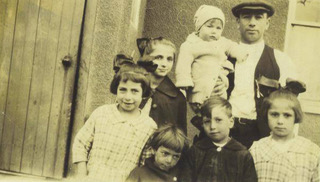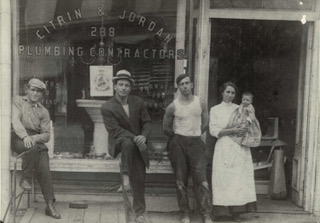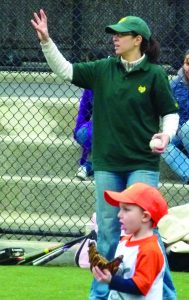
Frances Perkins was the first woman appointed to the cabinet of a US President. In 1933, Franklin Delano Roosevelt appointed Francis Perkins as the Secretary of Labor during the Great Depression. Perkins ushered in massive social reforms, leading the legislative efforts to institute Old Age, Survivors, Disability Insurance (aka “Social Security”), unemployment compensation, and workers compensation.
The first of her kind, the press was confused about what to call her other than “Secretary Perkins”. The Speaker of the House of Representatives, Henry Thomas Rainey (D-Ill), was called upon to clarify the appropriate honorific to use.
“When the Secretary of Labor is a lady, she should be addressed with the same general formalities as a secretary who was a gentleman. You call him Mr. Secretary. You will call her Madam Secretary.”
It’s not hard to show respect for women who take on roles that have long been held by men. Most times, you can simply call the woman by the same exact title as a man in the same position, like “Doctor” or “Vice President”. But for some people, finding a way to refer to women in positions that have been long dominated by men seems really difficult. This holds true on the baseball fields of Brooklyn.
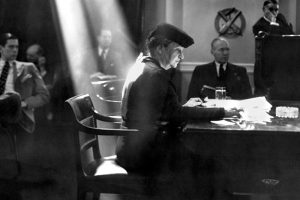
In the spring of 2010, I took to the artificial turf fields at the Dean Street Playground, near what would become the Barclays Center, as the head coach of the SFX Youthsports T-Ball team, the “Beetles”. My three year-old son, Jack, was excited to put on a uniform and enjoy the game that he saw his older cousins playing every spring. There was never a question about who would coach his team. It would be me.
For the five years before our first T-ball season, I served as an assistant coach to my nephews’ SFX recreational baseball teams, led by my brother-in-law, Coach John. In the spring of 2007, you could find me, visibly pregnant with Jack, coaching the runners at first base. For the first two springs of Jack’s life, a few times a week, he watched his uncle and his mom lead his nephews in practices in Prospect Park, and games all around Brooklyn. His Auntie Kristin, his Nana Sue, and his Daddy would keep an eye on Jack on the sidelines while John and I were busy on the field. I enjoyed my first Mother’s Day at the Parade Grounds, where Coach John helped coordinate coffee and donuts to celebrate the moms, like me, who made it to the game that morning.
For five years I was taking mental and physical notes about the kind of head coach I wanted to be when it was my turn. First and foremost, I wanted to instill a love of the game in my players. Just like John, it was important to me that the players knew the rules so they could understand the beauty of baseball. There was never a doubt in my mind that if the player could see how intertwined the physical and the psychological parts of the game were, that they would essentially find the spirituality of baseball, and fall in love.
Of course, this education had to be provided in an age-appropriate manner. Would you try to teach three and four-year-olds how to work a count for their own benefit and the batters behind them? Since there was no pitching in t-ball, such would be unnecessary, but also developmentally impossible. A success to be found in at-ball game was when a player would drop their bat before running, or more importantly, running to first base, instead of third. I’m still interested in the choice made by the baseball founders requiring baserunners to run counter-clockwise around the bases, instead of clockwise. I guess most three and four-year-olds feel the same way.
That first year as a head coach for the Beetles I didn’t feel out of place as a woman on the field. There were a few women leading t-ball teams that year, though we were definitely not close to a majority. There were also moms serving as assistant coaches, and moms helping coordinate the line-ups. There were moms helping with after-game snacks. Moms were everywhere. As the years went on, and the players got older, most moms moved back, away from the field, to enjoy their children’s participation on the field as a spectator. But not me. I was still there in the middle of the action, where I wanted to be.
After years of watching John, I was eager to coordinate my own team’s defense and offense. I was preparing pre-game and post-game team talks as I fell asleep at night. I got the butterflies every game day, out of excited energy.
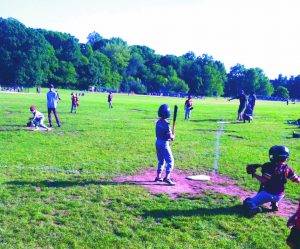
As we moved past the t-ball stage, and into Prospect Park as the kids turned five, my uniqueness as a female coach became more obvious. There were practically no other women wearing the collared SFX head coach shirt with the color-coordinated baseball cap that I wore each game with great pride. I guess my rarity as a female head coach helps explain why many fellow head coaches, men wearing the same collared shirt and hat as I, would literally miss my physical existence as we prepared for game time. Time and time again the opposing coach would walk up to a father on my team, not wearing a coach’s shirt or cap, to clarify which team was batting first, or what time our game would start. Time and time again the dads on my team would put their hands up and say something like, “oh, no. I’m not a coach. You have to talk to Coach Kathryn. She’s over there.” And there I was, wearing a matching outfit, setting up the field; putting the bases down, measuring the base paths with my retractable measuring tape. I thought I was ultra-visible in my uniqueness, but on those occasions I was invisible; the opposing coaches didn’t even know to look for me, though I was clearly there.
Not being seen is hard to take, but being seen and not respected is more difficult to swallow. A few glaring examples over the past decade come to mind. There was the father of a 5-year-old player on the opposing team who left his spot on the sidelines to tower over me, incensed that I was insisting an umpire apply the appropriate rules to his son’s at-bat. His voice raised, he kept referring to me as “ma’am” at the end of each of his sentences, but the inflection of his tone made it clear that he was not using it as a term of respect, but a reminder that I was the only woman on the field.
Then there is the use of “lady”. At least with “ma’am” the speaker can feign respect; when a man calls a woman “lady”, as in “what’s your problem, lady?”, it is quite clear that no civility is intended. I get “what’s your problem, lady?” at least once a year. Most often it comes from the sidelines, uttered by frustrated dads who seem to have trouble accepting their son will lose to a team coached by a woman. Sometimes it comes from opposing coaches, usually when I’ve caught them trying to skip past their weaker batters in the line-up when the score is really close. When Jack was nine, there was the middle-aged umpire, frustrated, and likely embarrassed, with my correcting him and our opposing coach on the rules of our level of play. As I turned away from our meeting behind home plate to return to my team’s dugout, he muttered within earshot, “whatever, lady”.
There is absolutely no reason to use the terms “ma’am” or “lady” on the baseball field. There is one term, and one term alone that should be used to refer to me, or any other woman leading their team on the baseball field, or any other sports field for that matter. You can call me “Coach”.

